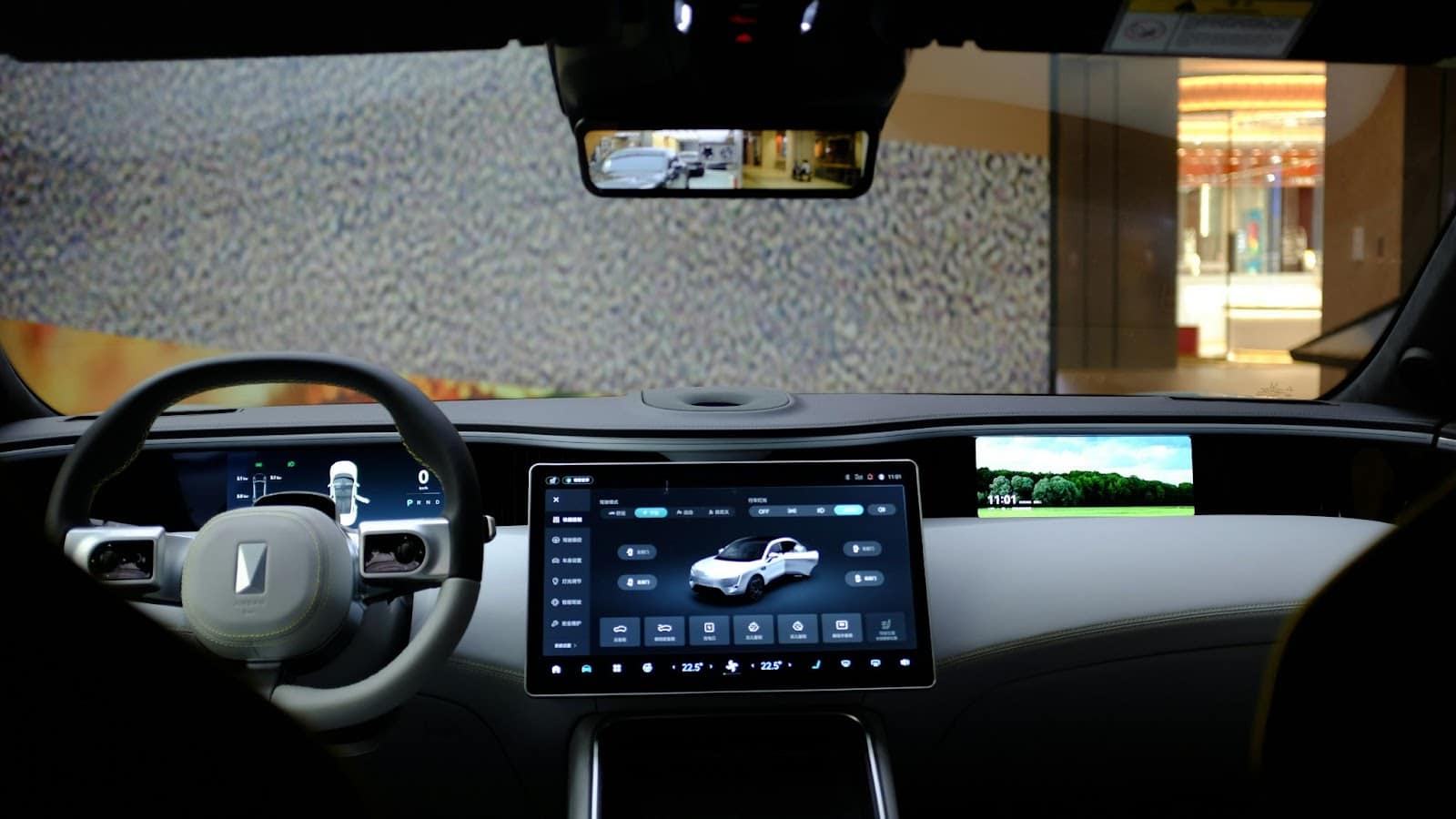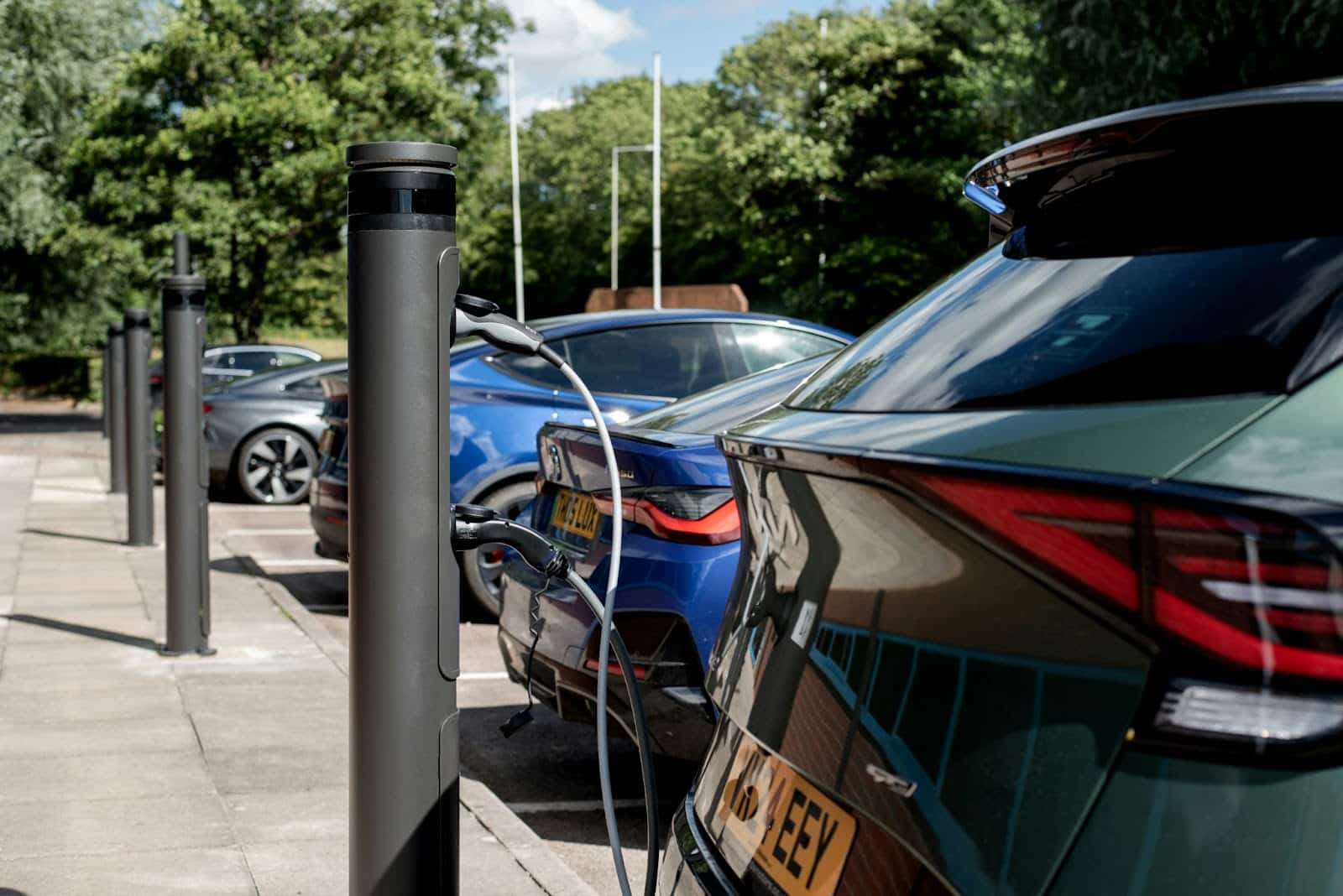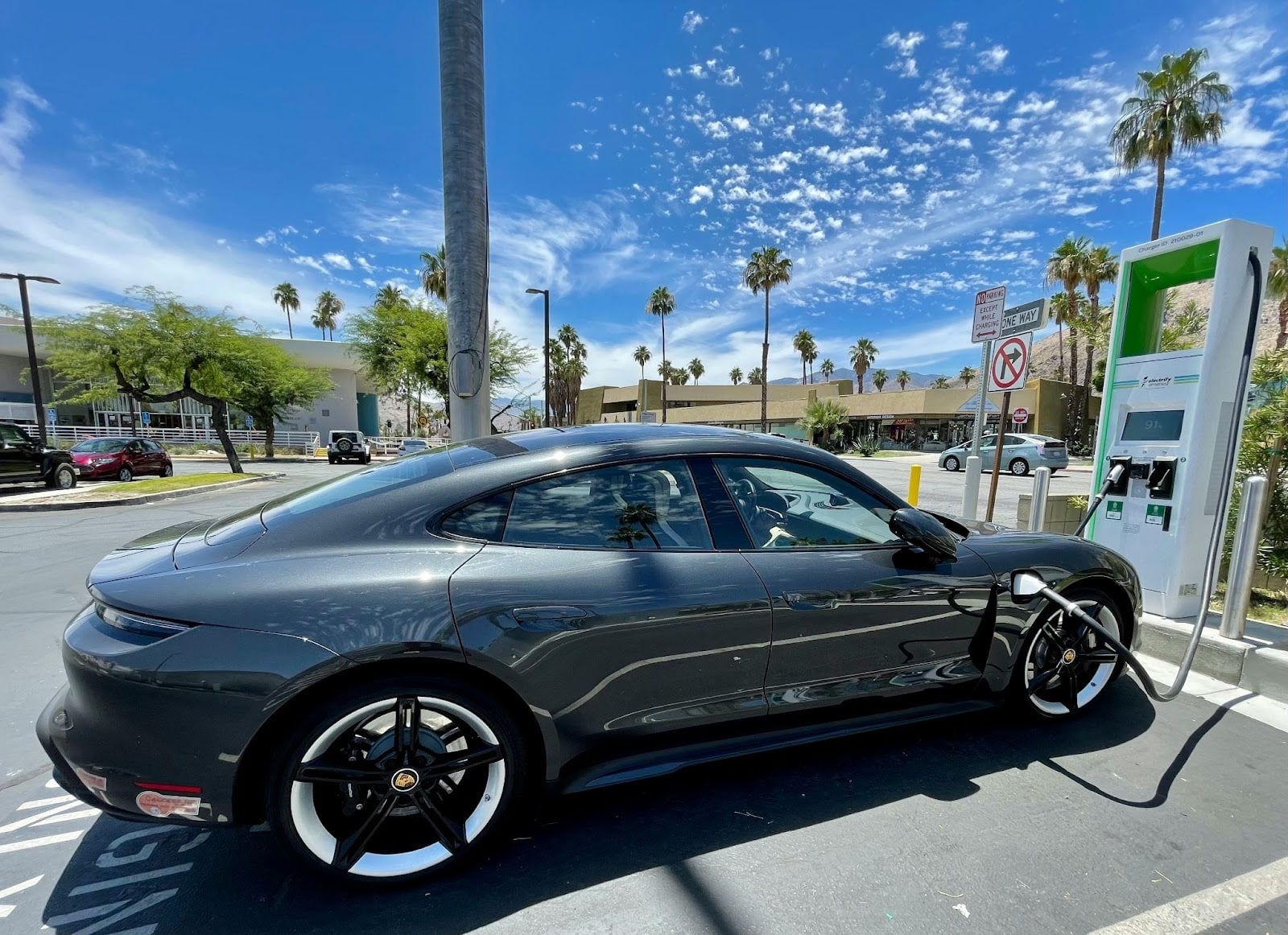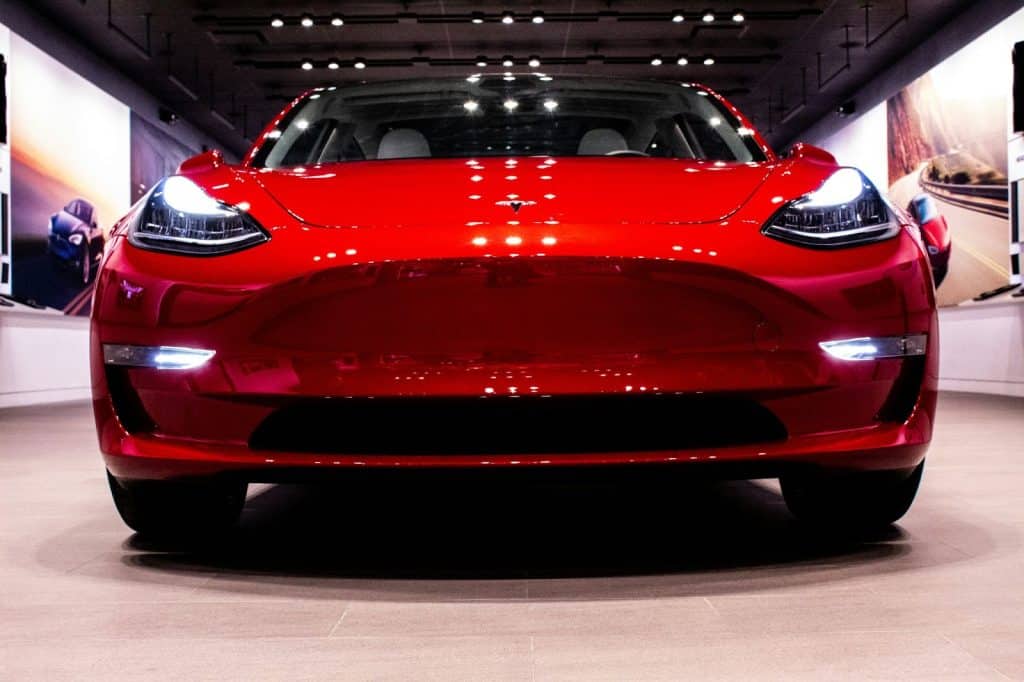The automotive world faces a fundamental question that once seemed impossible to answer: Can true luxury coexist with environmental responsibility? For decades, luxury vehicles represented excess, powerful engines, premium materials, and opulent designs that prioritized indulgence over sustainability. The emergence of electric vehicles is challenging this paradigm entirely.
Today’s discerning buyers refuse to choose between their values and their desire for premium experiences. They demand vehicles that deliver world-class comfort, cutting-edge technology, and exhilarating performance while minimizing environmental impact. The luxury electric vehicle market is rising to meet this challenge in ways that are redefining what premium motoring means.
The answer is increasingly clear: sustainable luxury is not just possible, it’s becoming the new standard. Modern electric luxury vehicles prove that environmental consciousness and premium experiences can enhance rather than compromise each other. This revolution extends beyond powertrains to encompass materials, manufacturing processes, and the entire ownership experience.
The Evolution of Luxury Electric Vehicles
Early electric vehicles faced skepticism from luxury car buyers who viewed them as compromises. The perception was that choosing electric meant sacrificing performance, range, comfort, or prestige. Those days are definitely over as brands like Rolls-Royce, Porsche, Mercedes-Benz, and BMW embrace electrification.
The luxury EV market has exploded into a $643.9 billion industry projected by 2030. Major manufacturers are launching flagship electric models that match or exceed their combustion counterparts in every meaningful metric. These aren’t just “green” alternatives; they’re the pinnacle of automotive engineering.
Brands entering the electric luxury space bring fresh perspectives on sustainable premium mobility. Companies like Denza Singapore demonstrate how electric luxury MPVs can combine zero-emission driving with limousine-like comfort for discerning families. The diversity of offerings spans performance sedans, grand touring coupes, spacious SUVs, and family-oriented MPVs.
Redefining Luxury Materials and Manufacturing

True sustainable luxury extends far beyond the powertrain to every component and process. Leading manufacturers are revolutionizing how luxury vehicles are built, sourced, and conceived. The results challenge traditional assumptions about what premium materials must be.
Recycled ocean plastics now appear in luxury interiors through materials like Econyl, found in vehicles from Maserati to Audi. These recycled nylon fibers deliver the same tactile quality as virgin materials while removing waste from our oceans. The laser-cut designs and unique textures often surpass traditional alternatives in visual appeal.
Sustainably sourced wood trims use naturally fallen timber rather than harvested trees. Manufacturers like Bentley employ chrome-free tanning processes for leathers, reducing toxic chemical use without compromising suppleness or appearance. Even vegan leather alternatives now offer luxury-grade aesthetics and durability that satisfy the most discerning buyers.
The Performance Paradox
Electric powertrains deliver performance characteristics that combustion engines simply cannot match. Instant torque from standstill creates acceleration that feels almost violent in its immediacy. The Porsche Taycan Turbo S, Tesla Model S Plaid, and Lucid Air Sapphire demonstrate that electric vehicles can be the fastest production cars ever built.
This performance comes with whisper-quiet operation that enhances rather than diminishes the luxury experience. The absence of engine noise reveals previously masked road imperfections, pushing manufacturers to achieve unprecedented levels of refinement. Advanced sound engineering creates subtle, characterful sounds that enhance driver engagement without disturbing passengers.
The low center of gravity from floor-mounted battery packs transforms handling dynamics. Electric luxury vehicles corner with precision and stability that traditional designs struggle to achieve. Combined with advanced air suspension systems and rear-wheel steering, these vehicles deliver both sporting agility and limousine-like ride comfort.
Environmental Impact Beyond Tailpipe Emissions

Sustainable luxury vehicles address their entire lifecycle environmental impact, not just operating emissions. Manufacturing processes increasingly utilize renewable energy, with some facilities achieving carbon-neutral production. Supply chain transparency ensures cobalt, lithium, and other materials are ethically sourced.
The charging infrastructure itself is becoming greener as renewable energy generation expands. Many luxury EV owners install solar panels to charge their vehicles with truly clean energy. This closed loop of renewable generation and consumption represents the ultimate expression of sustainable premium mobility.
Total lifecycle emissions for luxury EVs are substantially lower than equivalent combustion vehicles, even accounting for battery production. As electrical grids incorporate more renewable energy, this advantage grows. The longevity of electric drivetrains means these vehicles can serve owners for decades with minimal degradation.
Technology as a Luxury Feature
Advanced technology has become inseparable from the luxury experience in modern vehicles. Electric platforms enable innovations impossible with combustion engines. The absence of transmission tunnels and exhaust systems creates flexible interior packaging that maximizes space and comfort.
Digital interfaces in luxury EVs set new standards for sophistication. The Mercedes EQS features a 56-inch Hyperscreen spanning the entire dashboard, creating an immersive digital environment. These systems integrate seamlessly with smartphones, smart homes, and digital assistants for unprecedented connectivity.
Over-the-air updates keep vehicles current throughout their ownership, adding features and improving performance without dealer visits. This software-defined vehicle approach transforms luxury cars into platforms that improve over time. Tesla pioneered this approach, and legacy manufacturers are rapidly catching up.
The Luxury of Convenience
Electric vehicle ownership offers convenience factors that enhance the premium experience. Home charging eliminates fuel station visits; you start each day with a full “tank” without effort. For many owners, this convenience outweighs any range anxiety concerns.
Silent operation means luxury EVs can be warmed or cooled in garages without carbon monoxide concerns. Preconditioning the cabin before departure becomes a daily luxury rather than an occasional treat. These small conveniences accumulate into a fundamentally superior ownership experience.
Reduced maintenance requirements mean fewer service appointments and lower long-term costs. Electric drivetrains have fewer components to fail, wear, or require scheduled replacement. For luxury buyers, this reliability and reduced hassle represent a form of premium service.
Design Innovation and Aerodynamic Excellence
Electric platforms liberate designers from constraints imposed by combustion drivetrains. Without grilles for engine cooling, front fascias can be reimagined entirely. The result is distinctive, futuristic aesthetics that announce their electric nature.
Aerodynamic efficiency becomes paramount for maximizing range, pushing designers toward sleeker, more elegant forms. Flush door handles, optimized underbodies, and carefully sculpted surfaces reduce drag while enhancing visual appeal. The Lucid Air achieves a remarkable 0.197 drag coefficient while maintaining stunning proportions.
Interior packaging benefits from the absence of transmission tunnels and bulky engines. Cabins feel more spacious with flatter floors and forward-positioned dashboards. This space efficiency allows luxury EVs to deliver business-class rear seating in vehicles with smaller exterior footprints.
Sound Engineering and Acoustic Refinement
The quietness of electric powertrains reveals every other noise source, demanding unprecedented acoustic refinement. Luxury EV manufacturers employ advanced sound deadening, laminated glass, and active noise cancellation. The result is near-silent cabins that feel more premium than any combustion vehicle.
Some manufacturers add synthesized sounds to enhance the driving experience. Porsche’s electric sport sound and Bentley’s Electric Sound provide acoustic feedback without disturbing the serene environment. These sounds can be customized or disabled entirely based on driver preference.
Premium audio systems benefit enormously from quiet cabins. Without engine noise masking subtle details, high-end audio installations deliver concert-hall experiences. Brands like Bowers & Wilkins, Bang & Olufsen, and Burmester create systems specifically calibrated for electric vehicles’ acoustic environments.
The Premium of Personalization

Luxury has always meant personalization, and electric vehicles expand customization possibilities. Digital interfaces can be configured extensively to individual preferences, learning habits, and anticipated needs. Multiple driver profiles store every preference from seat position to ambient lighting.
Exterior and interior color combinations can be far more adventurous thanks to simplified manufacturing processes. Brands offer bespoke programs where virtually every element can be customized. Rolls-Royce’s Spectre, for instance, maintains the marque’s legendary personalization options in electric form.
Subscription services offer on-demand features like enhanced performance modes or advanced driver assistance. This model allows owners to try features before permanently adding them. It represents a new form of luxury, the flexibility to evolve your vehicle’s capabilities over time.
Range and Charging Reality
Modern luxury EVs deliver ranges that exceed most daily driving by substantial margins. The Lucid Air achieves over 500 miles of EPA-estimated range, more than many combustion vehicles. For the vast majority of trips, range concerns are purely theoretical.
Ultra-fast charging technology enables significant range recovery during brief stops. The Porsche Taycan can add 200 miles in just 18 minutes with optimal charging conditions. For luxury vehicle owners with flexible schedules, this represents minimal inconvenience.
Charging infrastructure continues to expand rapidly in premium locations. Hotels, restaurants, shopping centers, and office buildings increasingly offer charging as an amenity. For luxury EV owners, charging becomes an opportunity rather than an obligation.
The Investment Case
Luxury electric vehicles increasingly represent sound financial decisions beyond their environmental benefits. Government incentives substantially reduce acquisition costs in many markets. Lower operating costs from reduced fuel and maintenance expenses compound savings over time.
Depreciation patterns for luxury EVs are stabilizing as the technology matures and the used market demand grows. Early luxury EVs depreciated rapidly, but current models retain value more effectively. The longevity of electric drivetrains suggests these vehicles can remain desirable for decades.
Total cost of ownership comparisons increasingly favor electric luxury vehicles. When factoring in incentives, fuel savings, maintenance reductions, and potential tax benefits, EVs often cost less over five years than equivalent combustion vehicles despite higher purchase prices.
The Future of Luxury Mobility
The trajectory is clear: electric powertrains will dominate luxury vehicles within the decade. Major manufacturers have announced plans to transition entirely to electric offerings. This isn’t driven primarily by regulation but by consumer demand and technological superiority.
Next-generation luxury EVs will push boundaries even further with solid-state batteries, autonomous capabilities, and vehicle-to-grid integration. These advances will enhance convenience, performance, and sustainability simultaneously. The line between transportation and lifestyle technology will blur entirely.
Sustainable luxury represents not just environmental responsibility but a more thoughtful, considered approach to premium living. Modern luxury buyers increasingly view conspicuous consumption as dated, preferring sophistication that reflects values and intelligence. Electric vehicles perfectly embody this evolution.
The Verdict: Luxury Redefined
The question “Can you have both sustainable and luxury?” has been definitively answered: not only can you have both, but sustainability enhances modern luxury. Electric vehicles deliver superior performance, refined experiences, and innovative features while minimizing environmental impact.
Today’s luxury EV buyers aren’t making sacrifices; they’re gaining advantages impossible with combustion technology. The instant torque, whisper-quiet operation, advanced technology, and reduced maintenance combine to create a fundamentally superior ownership experience. Environmental consciousness is simply one more premium feature.
The future of luxury is electric, not because it must be, but because it’s better. From Rolls-Royce to Porsche, from Mercedes-Benz to emerging brands, the world’s finest automakers recognize that electric platforms enable their most ambitious visions. Sustainable luxury isn’t a compromise; it’s the evolution of premium motoring into its most refined form yet.
